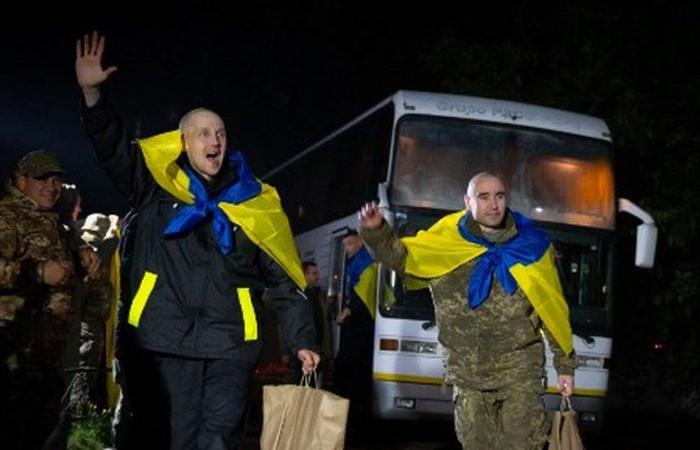
the essential
Several Ukrainian soldiers, who had been captured and imprisoned in Russia, recently testified about their daily life in prison, including torture, lack of food and sexual violence.
Since the start of the conflict, Russia has been accused of systematic violations of the Geneva Conventions, a set of international rules aimed at protecting people in times of war. Recent testimonies from Ukrainian soldiers and civilians captured by Moscow's services confirm many suspicions. Famine, barbarism, malnutrition, disease, torture and even rape, these Ukrainians experienced the horror and told it.
One of the most striking testimonies is that of Mikhailo, a Ukrainian sailor, who lost 20 kg in 4 months during his detention. When he returned to his family with a broken arm, he told Sky News that it was impossible to eat. You only had 30 seconds to swallow everything you could. At the end of that time , we had to stop. Then we had to get up immediately and run. It was like that all the time. The bread was hard, but it was a deliberate choice. were not able to eat in time.”
“We had a quarter of a slice of bread”
He is not the only one to have testified to the terrible conditions suffered in prison. Others pointed out the difficulty of drinking water. “There was “industrial” and so-called drinking water. It’s difficult to say that we drank water, it was brought by fire trucks and it was rusty,” describes a soldier for independent Kyiv. “I really wanted to drink normal water and not just rinse it in my mouth and spit it out,” adds Tetiana El Diab. To combat this situation, the prisoners set up D systems. “We tore our t-shirts and made a kind of gauze to pour this water and filter the rust,” explains this same ex-inmate.
The observation was the same for Yuriy Armash, a Ukrainian doctor imprisoned very early in the conflict and who was able to see the barbaric methods of the Russians. He assured Radio Liberty that torture was always the first step for Ukrainian prisoners and that he experienced starvation. “We weren't really fed: we could have a quarter of a slice of bread and water for breakfast.”
“You are not a woman”
The state of health of several of them deteriorated considerably over the course of their detention. “They put electric wires on different parts of the body, including the genitals. They gradually increased the voltage. Sometimes it was so powerful that you peed on yourself. They put your feet in a bucket of water, which which made the electric shock stronger,” said Yuriy Armash. He found himself locked in a cell designed for four people but where 18 inmates lived together.
Women have not been spared by Moscow, as Natalya Boberaska told Radio Liberty. “They first threatened me then hit me and they said to me 'at the police station, they will talk to you differently and beat you properly'. I asked: are you going to beat a woman?' And they said, 'You're not a woman, you're trash.' This Ukrainian hairdresser, arrested after raising funds for her country's soldiers, confirmed that “the Russians beat everyone who was admitted.”
Sexual violence
In total, since the Russian invasion of Ukraine, 57 prisoner exchanges have taken place between the two countries. Investigations are ongoing by international organizations and Ukrainian governments into these acts of torture. “Our recent findings demonstrate that Russian authorities committed acts of torture in all provinces of Ukraine under their control, as well as in detention centers investigated by the commission in the Russian Federation,” Erik said. Mose, chairman of the independent commission investigating human rights violations in Ukraine.
“The commission also found additional evidence of the recurrent use of sexual violence as a form of torture,” he added. Women, men, children, soldiers or not, many Ukrainians were tortured, sometimes sexually. As told by Vadym, this 56-year-old man. “While they were beating me, one of them hit me in the genitals. I said 'you can kill me, you don't have the right to hit my genitals.' They pulled down my clothes and shocked my genitals.” These brutal practices aim to terrorize and break Ukrainian soldiers and civilians.





